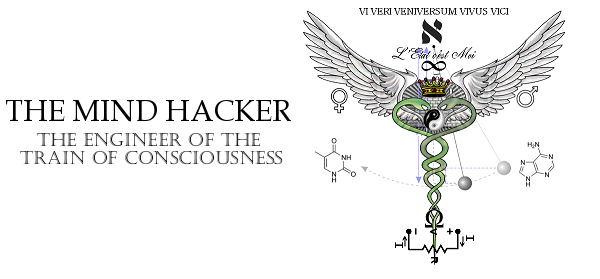
In the Beginning Was the Word, and the Word Was Power: How Language Shapes Your Reality
The root of all creation in your mind begins with words. Just as “In the beginning was the Word, and the Word was with God, and the Word was God,” the words you choose become the foundation of the world you live in. They aren’t just abstract symbols; they are the framework through which your mind interprets reality.
Your words create the experience you live. The labels you attach to events and experiences shape not only how you perceive them in the moment, but how they are etched into your mind as memories. Every event can be described in factual terms, emotional terms, or somewhere in between—and it is this storytelling, this inner dialogue, that gives meaning to your life.
When you think in words, you’re already giving abstract shape to reality. And the story you tell yourself about those experiences determines whether you grow or shrink in the face of them. Words are the medium through which we translate raw experiences into lessons, emotions, and ultimately, our perception of reality.
The most powerful thing to recognize is this: You have the power to control and define how you narrate your life. You are the author of the stories you tell yourself, and with that power comes a tremendous opportunity. If you retell events as factually and positively as possible, you can shift your emotional landscape. This isn’t lying—it’s mind hacking. It’s a conscious choice to frame your life in a way that benefits your growth, your peace, and your progress.
Mind Hacking: The Art of Reframing
Consider this: there is no objective "truth" to how you emotionally interpret an experience. There is only your perspective. And while we cannot change what has happened, we can change how we interpret it, how we learn from it, and how we move forward.
This is where the real power of language comes in. When you retell events to yourself, you can do so in a way that uplifts rather than diminishes you. Stoics like Epictetus remind us that it’s not the events themselves that disturb us, but our judgments about them. You hold the ability to frame your experiences in ways that empower you.
So, how do you do this? By retelling your story in a way that turns every setback into a lesson, every failure into fuel for growth, and every hardship into a crucible that forges strength. When you consciously choose the words you use to describe your experiences, you are not distorting reality—you are choosing to see reality through a lens that serves your higher purpose.
Your Perspective, Your Power
Now, does this mean that you ignore the perspectives of others? Absolutely not. True strength lies not in dominating your perspective over others, but in understanding and acknowledging that each person lives within their own narrative. Compassion begins when you recognize that everyone is telling themselves a story, just as you are. But at the end of the day, the only perspective you can fully experience is your own.
This doesn't mean you dismiss others’ experiences. Jocko Willink teaches that respecting others’ perspectives strengthens your ability to lead and influence. Compassion is born when you acknowledge that others’ stories matter too. Connection happens when you honor the narratives that both empower you and help others grow.
The Balance Between Fact and Emotion
You mention the difference between describing events factually versus emotionally. This is where balance comes in. Pure facts can be cold, but unchecked emotions can distort reality. The key is to recognize that both facts and emotions have a place. The words you use should ground you in reality but also uplift you emotionally.
Emotionally intelligent people understand this balance. Susan David would say that our emotions are data—they tell us something important, but they should not be our master. So, when retelling your story, be honest with yourself. Acknowledge what happened, but choose to focus on the growth it brings. If you fell short, acknowledge it and turn it into fuel for self-improvement. If you succeeded, celebrate the achievement and build upon it.
You Own the Narrative
At the core, your perspective is your reality. But this doesn’t mean that your perspective is always right or perfect—it just means it's the one you experience. So, take ownership of your narrative. Be deliberate in choosing how you define events. Don’t fall into the trap of victimhood, where life happens to you. Instead, frame life as happening for you, with every experience providing a new opportunity to grow stronger, wiser, and more resilient.
There’s no need to be bound by past interpretations. You can rewrite your story at any time. And when you do, make sure it’s a story that inspires you to keep moving forward—one that acknowledges the facts but empowers you with optimism, resilience, and hope.
This is not about ignoring reality; it’s about mastering it.
When you realize that your words have the power to shape your reality, you unlock a new level of mastery over your mind and your life. The world may remain chaotic and full of uncertainties, but with the right words, you can always bring order to your inner world. And in doing so, you become a stronger, more capable version of yourself—one who not only shapes their own life but helps others shape theirs too.
